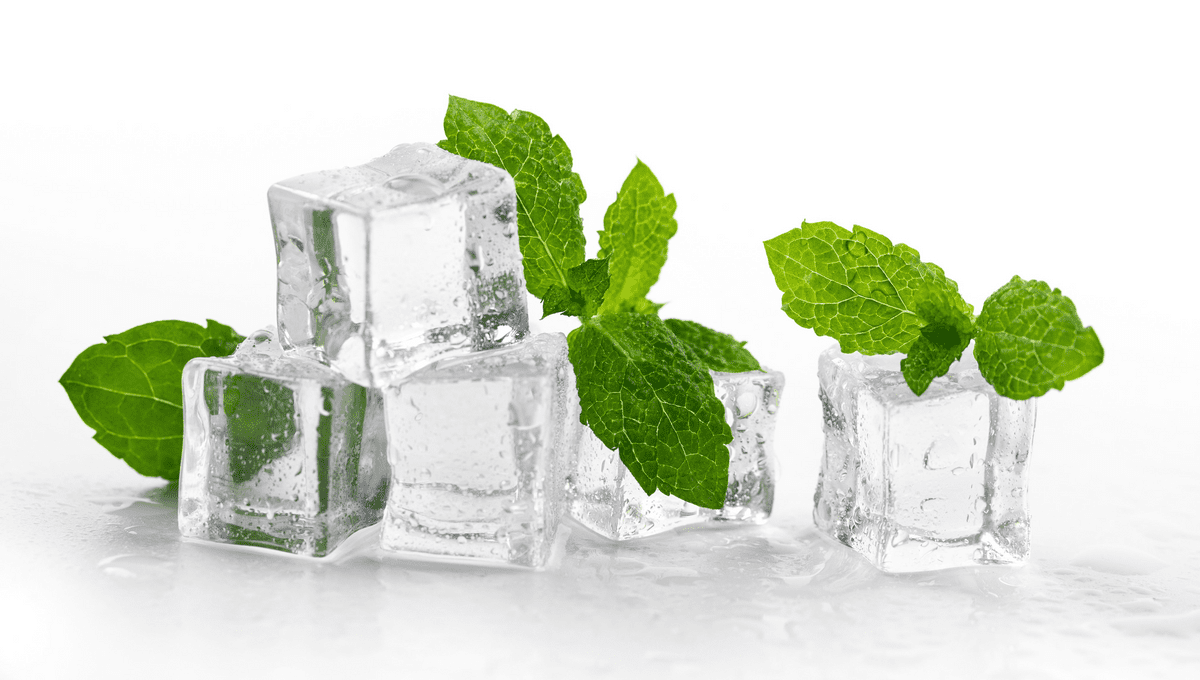
Menthol is a weird flavor, isn’t it? Probably more of an experience than a flavor – you pop a mint in your mouth, or some minty soap under your arms (or, Darwin forbid, on your genitals), and feel that signature ice-cool freshness come over you – but have you ever wondered why that is? It doesn’t exactly make sense that menthol would literally be a few degrees cooler than everything else at all times. So what’s going on?
A new study has the answer: using cryo-electron microscopy – a technique originally developed in the 70s but currently seeing something of a renaissance thanks to recent technological advances – researchers have revealed how cold-sensing ion channels in mouse neurons are activated by chemical compounds like those found in menthol. The result: that funny chilly feeling we all know and love so well.
“Mammals sense cold through drops in temperature or by exposure to particular compounds, such as the menthol found in peppermint,” explains the paper, published today in the journal Science. “The basis for this cold sensation is through activation of the transient receptor potential melastatin member 8 (TRPM8) ion channels. These channels are expressed in sensory neurons and function as the primary transducer for cool sensation in humans.”
Okay, that’s a lot of words. Let’s break it down into manageable chunks and figure out what’s going on. In fact, let’s break it down into molecular chunks: specifically, molecules of menthol. The first thing these little guys want to do after getting slapped onto your skin is to find somewhere to fit in – and luckily for them, our bodies have the perfect place.
Our cells are encased in a lipid bilayer: like a teeny-tiny hazmat suit made of a double layer of fat. It’s there to protect the cells – to make sure no ions or proteins can get in that shouldn’t.
However, imagine if your hazmat suit also didn’t let in air. Some proteins and ions need to be let in – and that’s where ion channels come in. These are special proteins, embedded in the membrane of the cells, which are there to let ions in and out; they can be triggered by a range of stimuli, from pressure, to heat, to chemical signals. When that happens, in (or out) flood the ions.
For the ion gate known as transient receptor potential melastatin member 8 (TRPM8), menthol is one of those triggers. With the help of a protein with the catchy name of phosphatidylinositol-4,5-bisphosphate (PIP2) menthol binds to TRPM8 perfectly, like a tiny minty key for the cellular lock that is the ion channel. In flood the positively charged sodium and calcium ions, changing the charge inside the cell, triggering the neuron to send out a signal called an action potential.
At least, that’s what everybody thought. However, until now, we couldn’t be 100 percent sure – because all the experimental data had come from bird ion channels.
Now, birds do also have this TRPM8 protein, but it’s a little different from the version mammals have. They have different thermal and chemical sensitivities, and they don’t fully open, at least during structural experiments. So while the evidence certainly seemed to suggest that PIP2 was important in TRPM8 channel opening, it’s only with this new study that the hypothesis has been confirmed.
That’s where the cryo-electron microscopy, or cryo-EM, comes in. Essentially a way of performing electron microscopy at extremely low temperatures, the researchers used this technique to capture snapshots of TRPM8 structures in mice as they move from their closed, through intermediate, to open states – revealing, for the first time, the molecular mechanism for PIP2– and cooling agonist-mediated TRPM8 activation by menthol.
This is more than just an interesting tidbit for filling awkward silences. “The lack of an open state structure – particularly of mammalian TRPM8 – has hampered not only our understanding of cold sensing in humans but also therapeutic developments targeting this important sensory receptor,” the authors explain.
Basically, the researchers believe, with a better understanding of what’s going on here – not necessarily “why menthol makes you feel cold,” but the exact structural mechanism behind that sensation – this study may have some seriously cool consequences for future pain management therapies.
And that’s very good news – because after that crash course in biochemistry, we need a pretty good headache tablet right now.
The paper is published in the journal Science.
Source Link: Scientists Have Finally Confirmed Why Menthol Feels Cold